This article will cover the Best USA-Made Crypto Coins that highlight America’s pioneering efforts in the innovation of blockchain tech.
Coins like XRP, Solana, and USDC, among other, dominance digital finance in terms of rapid transactions, safety, and transparency.
Learn how these cryptocurrencies from the USA are setting the pace for global uptake and influencing the decentralized digital assets of tomorrow.
Key Points & Best USA-Made Crypto Coins
| Crypto Coin (USA-Made) | Key Points |
|---|---|
| XRP (Ripple) | Developed by Ripple Labs in the USA; focuses on fast, low-cost cross-border payments; used by financial institutions; XRP Ledger enables decentralized finance (DeFi) and tokenization. |
| USDC (USD Coin) | Stablecoin backed 1:1 by USD; issued by Circle and Coinbase (Centre Consortium); regulated and transparent reserves; used widely for payments and trading. |
| Solana (SOL) | High-speed blockchain supporting DeFi and NFTs; founded by Anatoly Yakovenko in the USA; capable of 65,000+ TPS; low fees with proof-of-history consensus. |
| Dogecoin (DOGE) | Created as a meme coin by US developers Billy Markus and Jackson Palmer; based on Litecoin’s code; large community; used for tipping and microtransactions. |
| Cardano (ADA) | Founded by Charles Hoskinson (co-founder of Ethereum, USA-based); focuses on peer-reviewed research; strong smart contract platform; energy-efficient proof-of-stake. |
| Chainlink (LINK) | Founded by Sergey Nazarov (US-based); provides decentralized oracles for smart contracts; bridges on-chain and off-chain data; essential for DeFi infrastructure. |
| Stellar (XLM) | Created by Jed McCaleb (USA); aims for global payment efficiency; connects banks and payment systems; supports low-cost cross-border transactions. |
| Bitcoin Cash (BCH) | Fork of Bitcoin developed by US and global contributors; faster and cheaper transactions; focuses on peer-to-peer electronic cash usage. |
| Sui (SUI) | Developed by Mysten Labs (US-based); high scalability; built for gaming, NFTs, and fast transactions; uses Move programming language. |
| Avalanche (AVAX) | Created by Ava Labs (Cornell University team, USA); fast finality (under 2 seconds); supports DeFi, NFTs, and subnet creation; eco-friendly proof-of-stake. |
| Litecoin (LTC) | Created by US engineer Charlie Lee; one of the earliest Bitcoin forks; faster block generation; strong liquidity and wide exchange support. |
| Hedera (HBAR) | US-based Hedera Hashgraph network; governed by global enterprises; offers high speed, security, and low fees; ideal for enterprise blockchain solutions. |
| Zcash (ZEC) | Founded by Zooko Wilcox (US-based); privacy-focused blockchain; uses zero-knowledge proofs; allows optional transaction privacy. |
| Uniswap (UNI) | Developed in the USA by Hayden Adams; leading decentralized exchange (DEX) on Ethereum; automated market maker (AMM) model; supports token swaps and liquidity pools. |
| Aave (AAVE) | Originated in Europe but has major US operations; decentralized lending and borrowing platform; supports multiple assets; governance via AAVE token. |
| Worldcoin (WLD) | Co-founded by Sam Altman (US-based); aims for universal basic income through biometric identity verification; global but US-led development. |
| Algorand (ALGO) | Founded by MIT professor Silvio Micali (USA); pure proof-of-stake blockchain; fast, secure, and scalable; supports smart contracts and DeFi. |
| Filecoin (FIL) | Developed by Protocol Labs (US-based); decentralized storage network; rewards users for sharing storage space; supports Web3 infrastructure. |
| Injective (INJ) | Built by Injective Labs (US-based); layer-1 blockchain for finance; optimized for DeFi, trading, and derivatives; highly interoperable. |
| Theta Network (THETA) | US-based video streaming blockchain; founded by Mitch Liu and Jieyi Long; rewards users for sharing bandwidth; partners with Samsung and Sony. |
20 Best USA-Made Crypto Coins
1. XRP
XRP was created by Ripple Labs located in San Francisco with the purpose of providing easy and affordable payments worldwide.
Unlike traditional banking systems, XRP allows instant payments between financial institutions for very low or even no costs.
The XRP Ledger, a fully decentralized and efficient blockchain technology where XRP operates, allows tokenization and smart contracts.
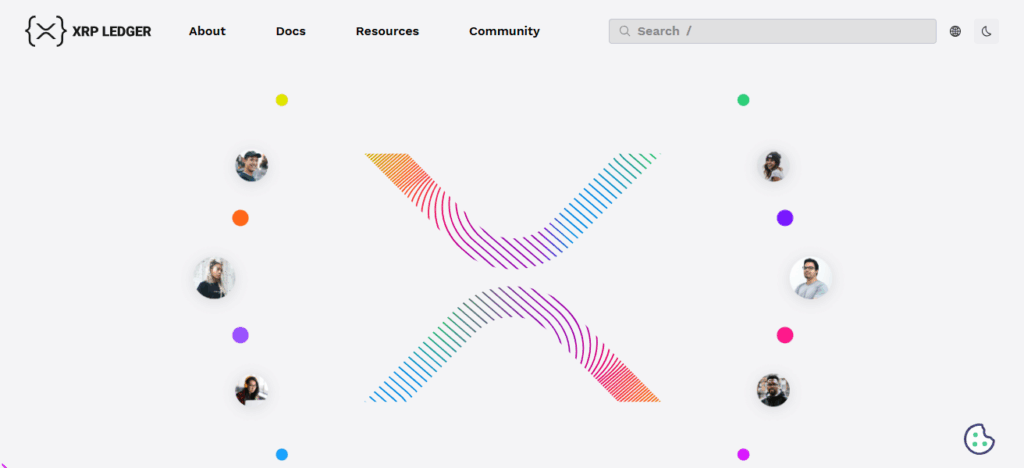
The use case for Ripple with global banks demonstrates the improvement of liquidity and transaction speeds.
XRP aims to change the payments and remittances market internationally for a transaction time of only 3 to 5 seconds, making it a prominent USA based cryptocurrency.
Features XRP (Ripple)
- Global Payment: Completing global payments in under five seconds is remarkable.
- Cost-Efficient: Transactions at 5 cents can be considered near free at bank level.
- Global Settlements: Ideal for financial institution cross border payments.
- Network Capability: 1,500 concurrent real time transactions is impressive for a system.
- Innovation Compliance: As the issuer of the crypto, USA financial system compliance and strategic innovation is a plus.
2. USDC
USDC is a fully collateralized stablecoin pegged 1:1 to the US dollar. It was launched by Circle and Coinbase under the Centre Consortium.
It provides transparency by having audits and is covered by US financial regulations, which makes it reliable and trusted.
USDC is a key bridge between fiat and crypto, especially in the crypto markets. It provides a phenomenal service in DeFi, payment processing, and trading platforms.
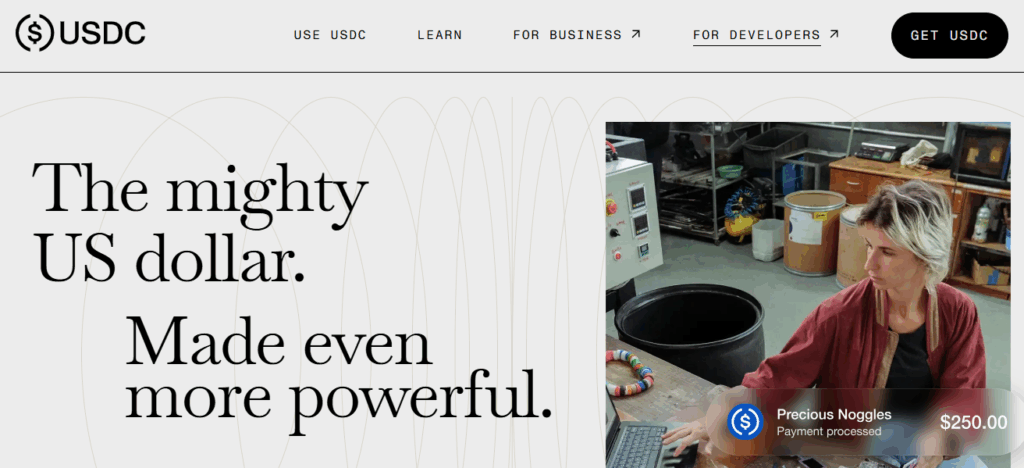
The reduced volatility works perfectly for merchants and institutions that need to use crypto, which in turn makes USDC even more useful.
Hosted on multiple blockchains such as Ethereum, Solana, and Polygon, USDC stands out as one of the first and trusted stablecoins developed in the US.
Features USDC (USD Coin)
- Peg Stability: The USDC is a stable coin with the value pegged at $1.
- Circle Compliance: USA guidelines include compliance mandates, strict system guidelines greatly reduce means risk.
- Audits: Regular widespread crypto coin audits are a trust system.
- Multi-Chain Access: Extending use features to include multiple blockchain protocols provides value.
- DeFi Systems: The USDC is a primary stable coin for DeFi, value for payments, crypto trading, and remittance.
3. Solana
Solana was founded by Anatoly Yakovenko in the USA and is one of the most scalable and high performing blockchains in the world.
With a unique combination of proof-of-history and proof-of-stake mechanisms, the Solana network is able to process over 65,000 transactions, which it does at an extremely low fee.
The network supports dApps, NFTs, and contains a few DeFi protocols, making it a strong contender to Ethereum.
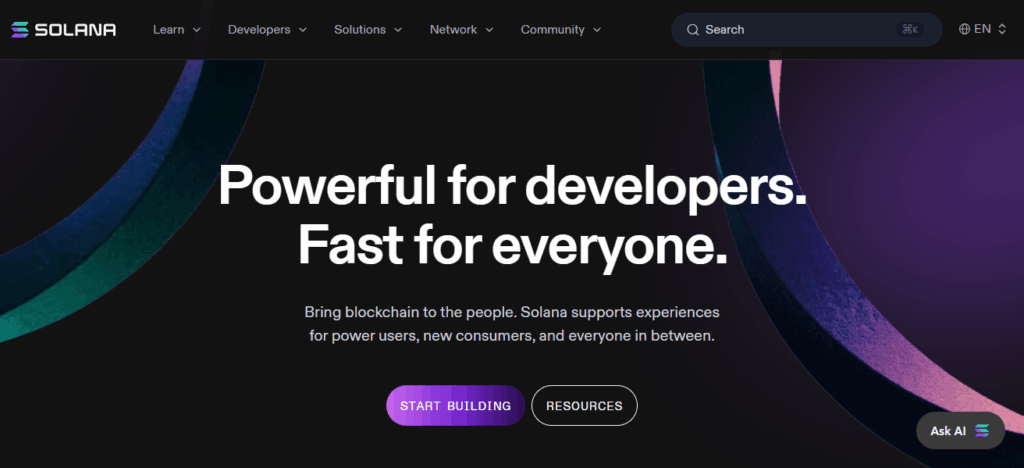
Solana specifically states that modern blockchain Web3 development can be done at scale and used all over the world.
It’s US origin is one of the many reasons why it has one of the highest performed crypto networks in the world.
Features Solana (SOL)
- Transaction Speed: More than 65,000 transactions with a system and real time updates is impressive.
- Cost of Transactions: Transaction cost is optimized with self reporting.
- Transaction Efficiency: The unique consensus and reporting improves system efficiency of transactions and reporting.
- Decentralized Apps: While DeFi Thousands of dApps exist with the Solana system.
- US Systems: Innovation in the blockchain system with the POF consensus is notable from the USA.
4. Dogecoin
Initially a meme and a joke akin to the shiba inu dog meme, Dogecoin has becoming widely used cryptocurrency, and has one of the most active and supportive communities.
It was created by American programmers Billy Markus and Jackson Palmer in 2013. Built on the same code as Litecoin, and utililizing the same proof of work mechanism, Dogecoin has fast and inexpensive transfers.
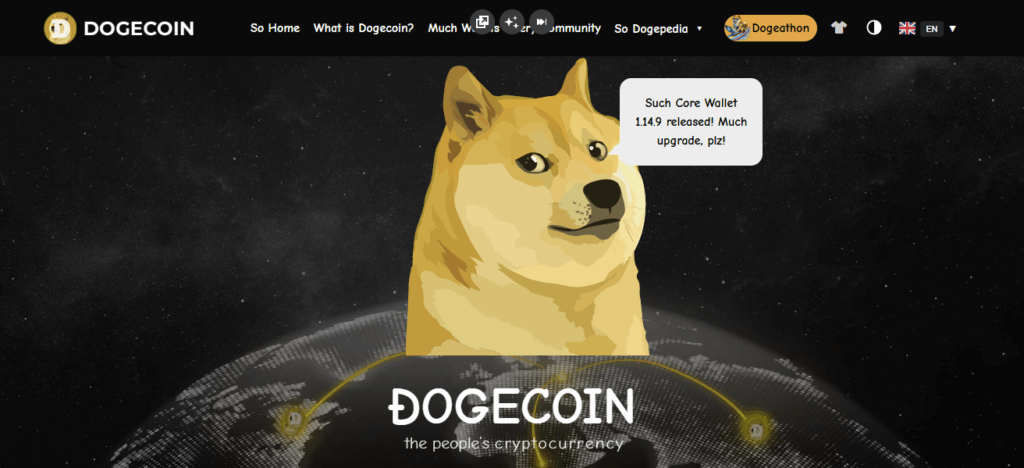
It has gained a large following with its tipping and charitable donations dogecoin has gained a lot of praise as a cryptocurrency. Unsurprisingly, it has humorous innovations and meme dogecoin gained praise as a meme.
Nevertheless, Dogecoin represents the community cavalier crypto creation and the community influence the United States.
Features Dogecoin (DOGE)
- Innovation Systems: The Doge system promotes innovation with the large online community.
- Incentives: The large online base community significantly improves token value.
- DeFi: The large online community promotes asset growth.
- Innovation: Community systems promote innovation in the Doge system.
- Cost and Transaction Speed: An efficient payment method for all users.
- Litecoin Similarities: Utilizes proof-of-work like Litecoin.
- Adoption Range: Accepted widely, from everyday merchants to Tesla.
- American Development: American software engineers Jackson Palmer and Billy Markus.
5. Cardano
With Cardano, US entrepreneur has build a third generation blockchain technology that has a focus on development that has been peer reviewed and academic research.
Employed consensus, Cardano and its founder have secured, determined, and made the blockchain more scalable and energy efficient.
With its ambition to foster transparency and inclusivity in the economy and focus in developing countries, Cardano has layered architecture.
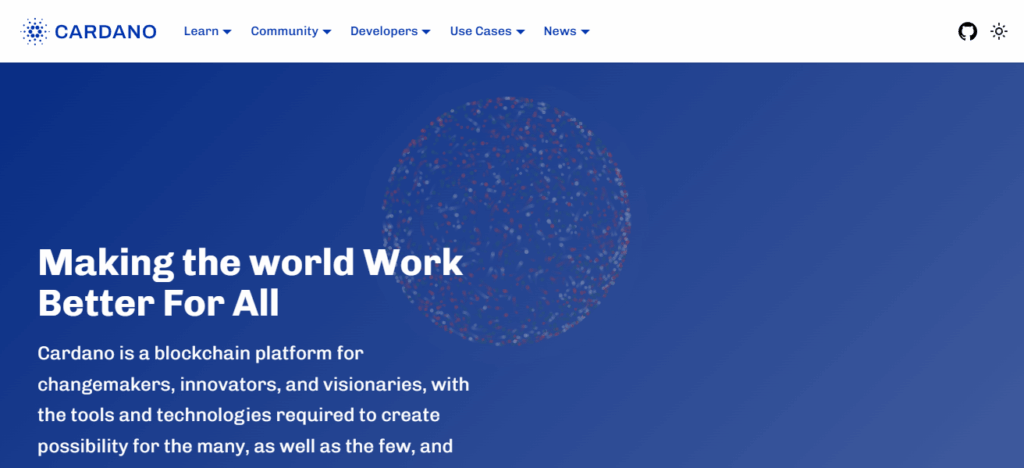
With US entrepreneurial initiative, Cardano is the first alternative to the crypto networks Bitcoin and Ethereum.
As a blockchain technology sustainable to Cardano, the used scientific research is one of the reasons for Cardano to be a first alternative. As former co founder of ethereum, Cardano represents the shift in blockchain technology.
Features Cardano (ADA)
- Research-Driven: Developed through the process of peer review.
- Eco-Friendly: Uses proof-of-stake mechanism.
- Designed for Scale: Processes thousands of transactions simultaneously.
- Smart Contract Capable: Facilitates advanced decentralized applications.
- American founded: Charles Hoskinson, a US entrepreneur, was the founder.
6. Chainlink
Chainlink was established by Sergey Nazarov in the United States and is recognized for its novel approach to integrating a decentralized oracle network into blockchain systems.
It serves as a bridge for smart contracts and real-time world data, empowering decentralized finance applications, insurance tools, and NFTs with safe and dependable transactions. Chainlink oracles provide real-time price feeds, weather data, and more.
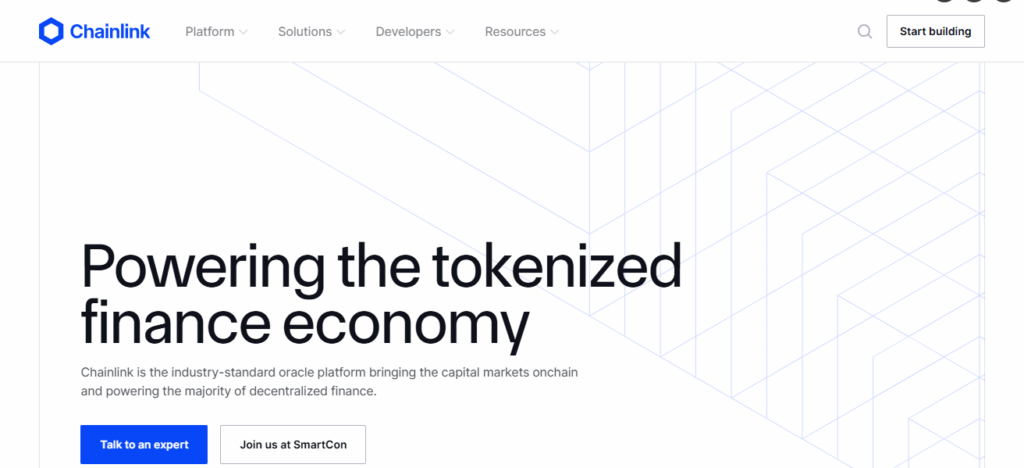
Chainlink is the first infrastructure in the United States blockchain ecosystem in connection with the Web 3.0 ecosystem as it provides oracles to major components of DeFi applications like Aave and Synthetix.
Features Chainlink (LINK)
- Decentralized Blockchain Oracles: Connect almost any block to real-world data.
- Core of DeFi: Serves as the underpinning of Aave and Synthetix.
- Secured Data Feeds: Certifies data is reliable, secure, and immutable.
- Cross-Chain Functions: Acts on different blockchains.
- American founded: Developed by US engineer Sergey Nazarov.
7. Stellar
Stellar was created by Jed McCaleb in the USA to bridge and simplify cross-border payments and the movement of funds between financial institutions.
It uses its native digital currency Lumens (XLM) to provide users with an inexpensive, quick, and convenient system for cross-border money transfers.
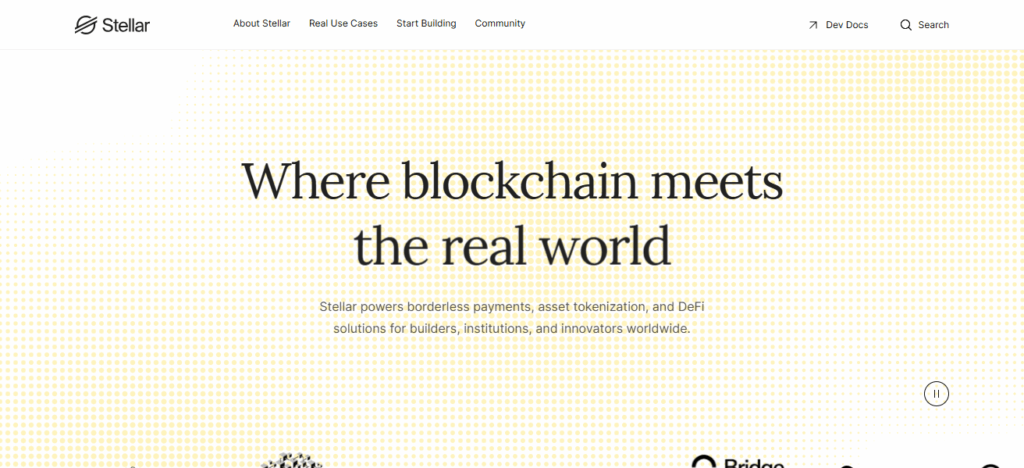
Distributed financial institutions and banks favor Stellar for cross-border payment systems as it is open-source and supports the integration of stablecoins and tokenized assets.
Stellar provides near zero transaction fees to users for cross-border payment transactions. Hence, it is vital for financial systems in regions with limited bank infrastructure. Stellar, like the USA, is important in providing cross-border payment solutions.
Features Stellar (XLM)
- Cross-Border Payments: Revolutionizes the global payment system.
- Negligible Fees: Transaction costs are less than a cent.
- Supports Tokenization: Digital assets, stablecoins and other blockchain technology.
- Open Source: Value is driven by the users.
- American founded: First project of Jed McCaleb in the US.
8. Bitcoin Cash
Bitcoin Cash was created in 2017 as a hard fork of Bitcoin to solve scalability issues and reduce transaction costs. Backed by American and international developers, it aims at facilitating quicker and cheaper peer-to-peer electronic cash transactions.
Bitcoin Cash aligns with Bitcoin’s original vision which was to make it a currency for everyday payments.

Its larger block size accommodates more transactions per block which increases efficiency for merchants and users.
Despite being a truly international cryptocurrency, BCH’s American roots and adoption by American crypto communities make it a key player in digital payments.
Features Bitcoin Cash (BCH)
- Quick Payment Processing: Offers increased transaction speeds when compared to Bitcoin.
- Cost Effective: More affordable than Bitcoin for everyday transactions.
- Increased Block Size: More transactions are accepted within each block.
- P2P Approach: Designed for day to day use.
- Contributions from the US: Strongly backed by the US community.
9. Sui
Sui, developed by Mysten Labs in the United States, is a next-generation Layer-1 blockchain focused on scalability and instant transaction finality.
It is built with the Move programming language created by Facebook’s Diem project, focussing on low latency and high throughput.
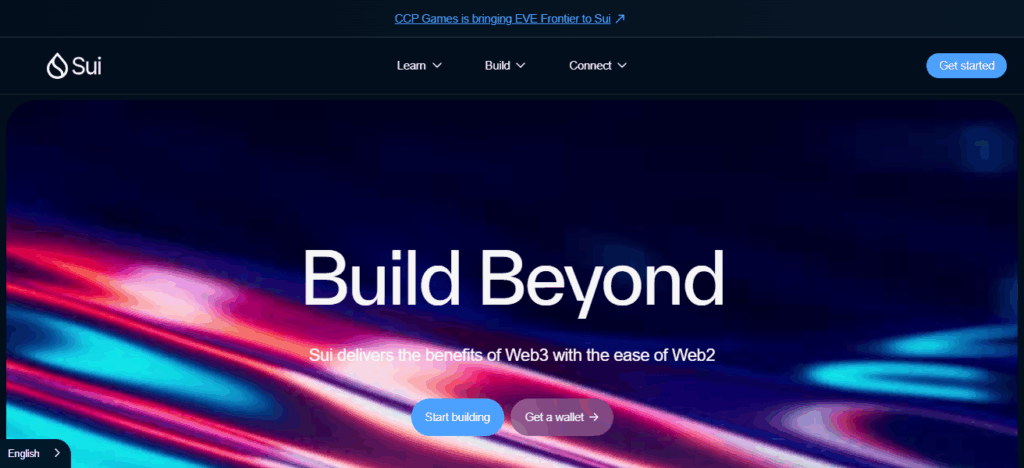
It is highly optimized for NFTs, gaming, and social applications, making it attractive for developers in need of fast, secure, and customizable blockchains.
Sui’s US team has strong backgrounds from Meta and other tech companies, making Sui a truly innovative American blockchain designed for Web3 performance and scalability.
Features Sui (SUI)
- High Scalability: Executes fast transactions in parallel.
- Move Language: Smart contract programming with security.
- Instant Finality: Under a second to confirm transactions.
- Gaming and NFT Deficiency: Enhanced for gaming applications.
- US Development: Mysten Labs in the US.
10. Avalanche
Avalanche was founded by Cornell University professor Emin Gün Sirer and his team at Ava Labs and is US-based blockchain technology focusing on decentralization and high-speed performance.
Its consensus mechanism offers transaction finality in under two seconds—one of the fastest in the industry. Avalanche is tailored to support customizable subnets for DeFi, NFTs, and enterprise use cases.
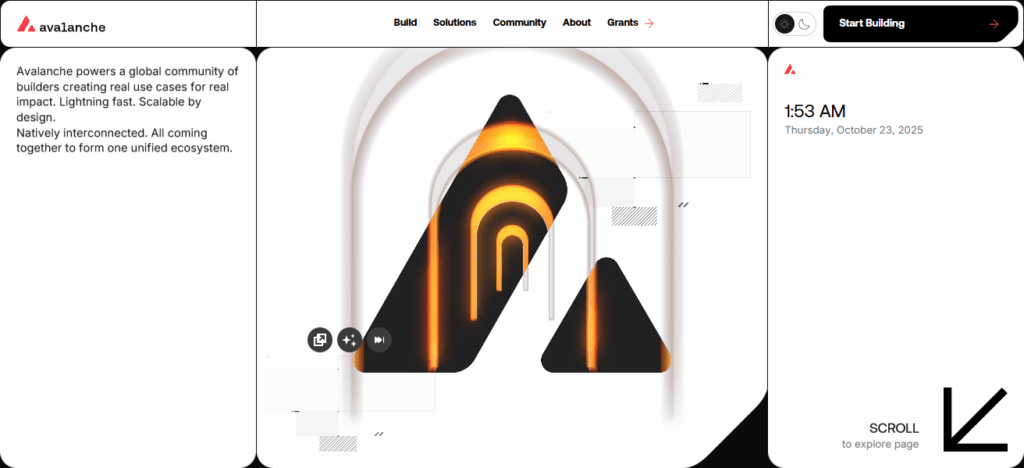
It boasts eco-friendly designs and is Ethereum smart contract-compatible. This offers developers added versatility.
With robust research and adoption around the world, Avalanche has positioned itself as one of the US blockchain networks leading the advancement of decentralized applications.
Features Avalanche (AVAX)
- Ultra Fast Finality: Under 2 seconds to confirm transactions.
- Eco Friendly: Uses energy efficient proof of stake.
- Interoperable: Works with Ethereum applications.
- Custom Subnets: Developers can make private blockchains.
- American Origin: Built by Ava Labs from New York.
11. Litecoin
Litecoin was created in 2011 in the US by software engineer Charlie Lee. It was one of the first altcoins.
As bitcoin’s “lite” version, Litecoin offers faster block generation and a more efficient proof of work (PoW) system.
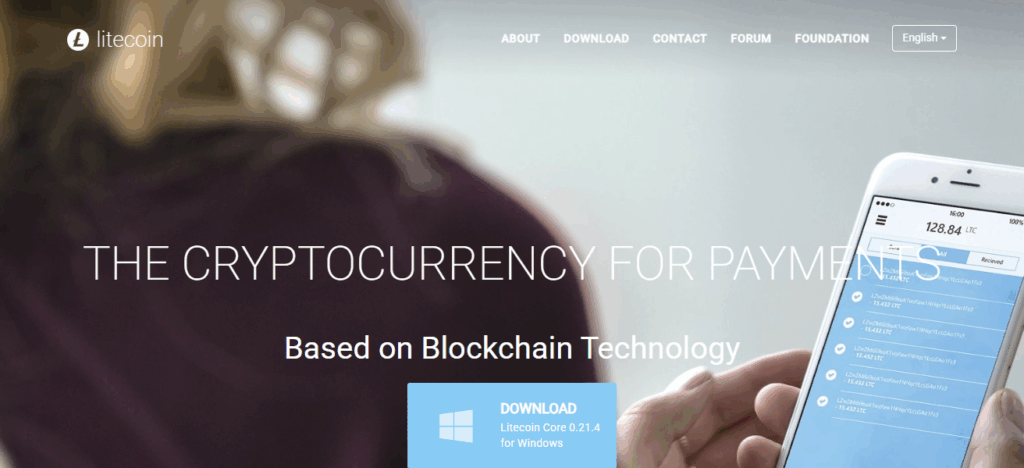
Due to its wide adoption by merchants and exchanges, it is also called “digital silver.” Us Cryptocurrency
Litecoin, has also become a reliable asset, innovative in blockchain technology, and has world-wide circulation, paving the way for everyday payments in crypto.
Features Litecoin (LTC)
- Bitcoin Fork: Designed to be faster and cheaper.
- Fast Blocks: Blocks generated every 2.5 minutes.
- Widely Accepted: Major exchanges and merchants support it.
- Strong Liquidity: High market volume ensures stability.
- Created in USA: Founded by America engineer Charlie Lee.
12. Hedera
Hedera Hashgraph, an enterprise-grade, high-speed, secure, and low-fee distributed ledger technology, was developed in the USA. Hedera is governed by globally distributed large companies like Google, IBM, and Boeing.
Its hashgraph consensus technology processes over 10,000 transactions within seconds, allowing the Hedera network to service enterprise-grade applications, NFTs, and tokenized assets.
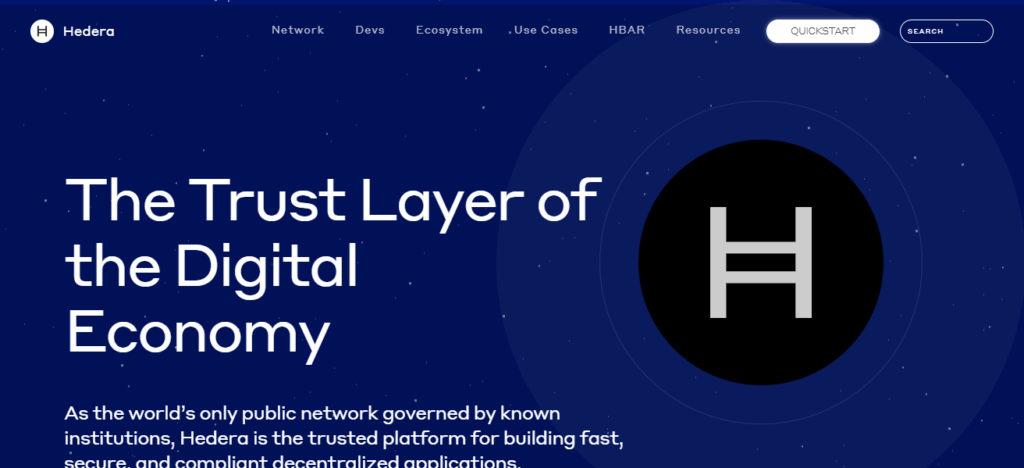
Hedera focuses energy-use efficiency, regulatory compliance and is positioned well among US-targeted institutional blockchain platforms developed and adopted.
Hedera’s unique blockchain technology energy focus is unparalleled in USA blockchain platforms developed for institutional adoption and sustainability.
Features Hedera
- Hedera (HBAR)
- Enterprise Ready: Governed by top global corporations.
- High Throughput: Supports over 10,000 transactions per second.
- Low Energy Use: Efficient hashgraph consensus mechanism.
- Predictable Fees: Stable and minimal transaction costs.
13. Zcash
Zcash is a cryptocurrency focusing on privacy and developed by US cryptographer Zooko Wilcox. Zooko developed Zcash in 2016 and is centered on privacy by using zero-knowledge proofs (zk-SNARKs) to secure an added layer on transactions.
Zcash, developed on the Bitcoin code base, allows for shielded, untraceable transactions and transparent, traceable transactions, giving the user the choice.
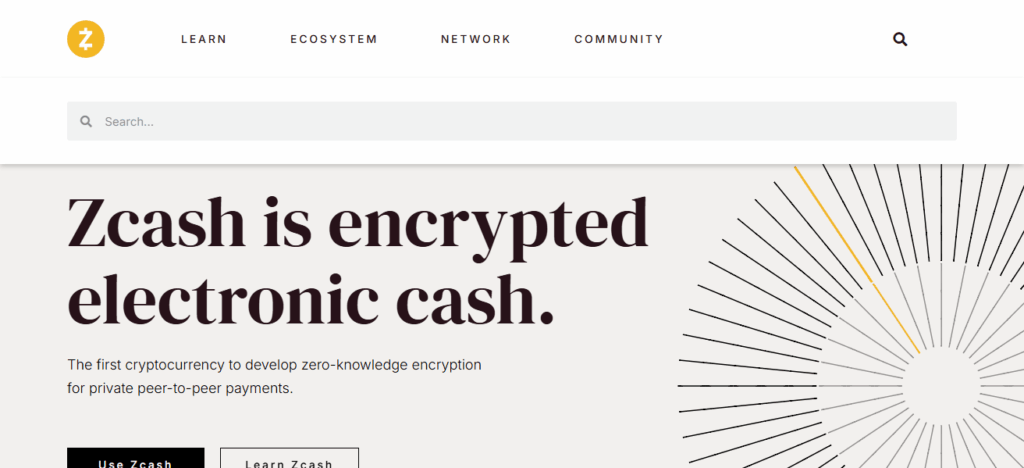
Zcash’s US-based development team strategically balances cryptographic innovation and regulation by compliance and integrating anonymity.
Zcash is an industry leader in privacy technology, and Zcash is a testimony of American innovation on technology secured focusing on the user, confidentiality, and personal blockchain solution layers.
Features Zcash (ZEC)
- Privacy Focused: Ensures anonymity using zero-knowledge proofs.
- Dual Transaction Mode: Offers transfers that are public and private.
- Strong Security: Core protocol security is based on Bitcoin.
- Innovative Technology: Confidentiality is assured by zk-SNARKs.
- American Origin: US cryptographer Zooko Wilcox founded it.
14. Uniswap
Uniswap is the first and the biggest decentralized exchange (DEX) on the Ethereum blockchain and is run by USA-based Hayden Adams.
Uniswap was the first DEX to use the automated market maker (AMM) which gave users the capability to swap tokens directly from their wallets.
Uniswap is one of the pillars of DeFi protocols, and it offers unlimited access to all its users on liquidity provisioning, governance, and decentralized trading.
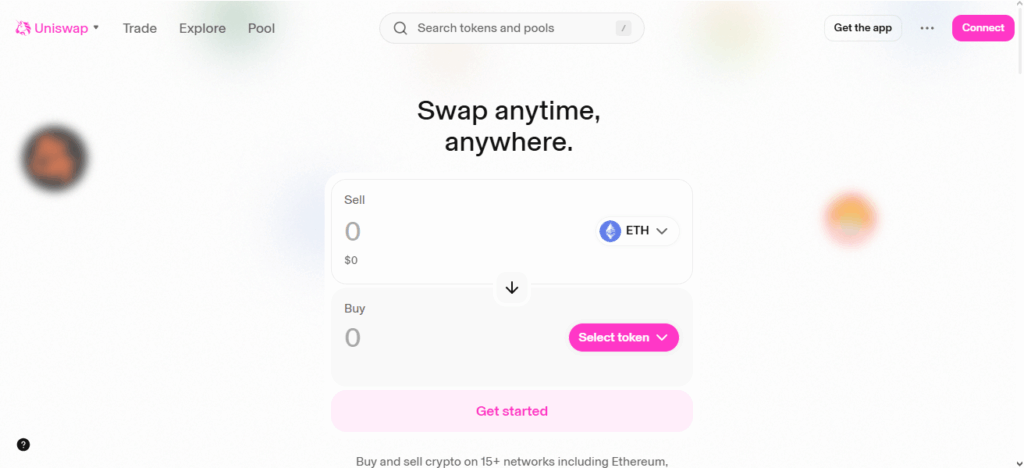
Its open-source code and community governance structure allow it to embody the decentralized finances’ deep principles of community trust.
As the first and foremost DEX to operate in the United States, the Uniswap protocol continuously enhances the decentralized finance landscape in transparency, efficiency, and user control.
Features Uniswap (UNI)
- Decentralized Exchange: Token swaps can occur in a peer-to-peer manner.
- AMM Protocol: Automated market maker system.
- Community Governance: Updates are voted on by the community.
- Ethereum-Based: It operates on the Ethereum blockchain.
- Developed in the USA: Hayden Adams founded it.
15. Aave
Although AAVE was first founded in Europe, it now has extensive community and operational presence in the USA. AAVE has solidified its position as one of the top decentralized protocols for borrowing and lending within the DeFi ecosystem.
A user can trustlessly use smart contracts to borrow against collateral, earn interest on deposits, and execute all other transactions.
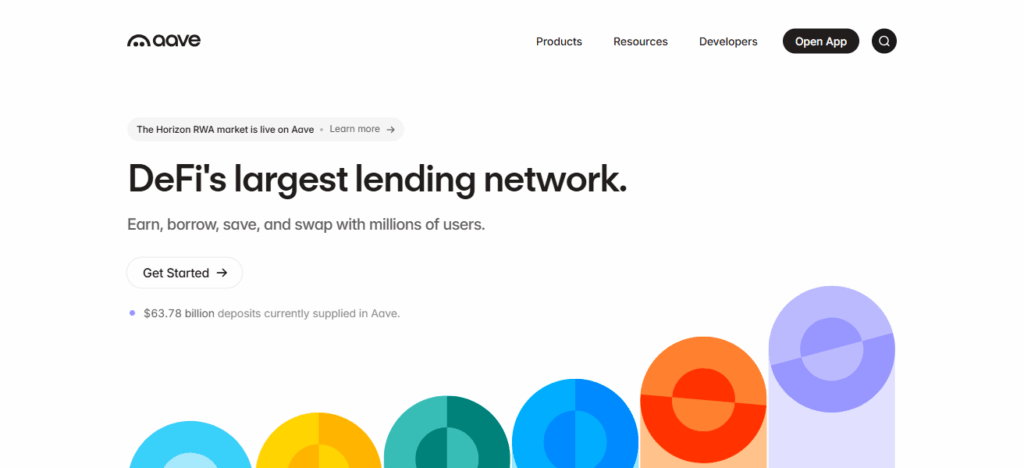
AAVE allows users to borrow against a much wider range of collateral and offers innovative products like flash loans, and adjustable interest rates.
The governance of AAVE also allows its holders to take part in the decentralization of AAVE. AAVE is a truly global protocol in the decentralized finance ecosystem which is an innovative influence also coming from the United States.
Features Aave (AAVE)
- DeFi Lending Platform: People can borrow and lend assets.
- Flash Loans: This is a feature where money can be borrowed instantly without collateral.
- Interest Earning: There are variable yields for depositors.
- Multi-Asset Support: Other assets can be Ethereum and Polygon.
- Strong US Presence: There is a significant influence in the USA.
16. Worldcoin
Sam Altman, co-founder of OpenAI, is developing Worldcoin, which incorporates iris-scanning technology to create a global financial identity system.
Using “Orbs” to sign and verify users, Worldcoin guarantees wallet owners privacy. Worldcoin tokens are distributed to signify participation in a basic universal income.

Worldcoin is a fully decentralized system built on the principle of financial Worldcoin is a universal decentralized system built on the principle of financial inclusion.
Given the biometric identity, cryptocurrency, and digital economies integration, the system is an innovation of the USA.
Features Worldcoin (WLD)
- Global Identity System: Identity is verified through iris scanning.
- Universal Access: Crypto aims to be provided for everyone.
- Privacy Protected: Securely encrypted and stored data.
- Blockchain-Based: Data is decentralized and transparent.
- US Leadership: Co-founded by US entrepreneur Sam Altman.
17. Algorand
Silvio Micali, the USA’s MIT professor and Turing Award laureate, built the USA’s first blockchain in 2017 developing the first blockchain based on accentuating
The 4 (speed, security, decentralization, and scalability) pillars of a blockchain system which proof of stake technology.
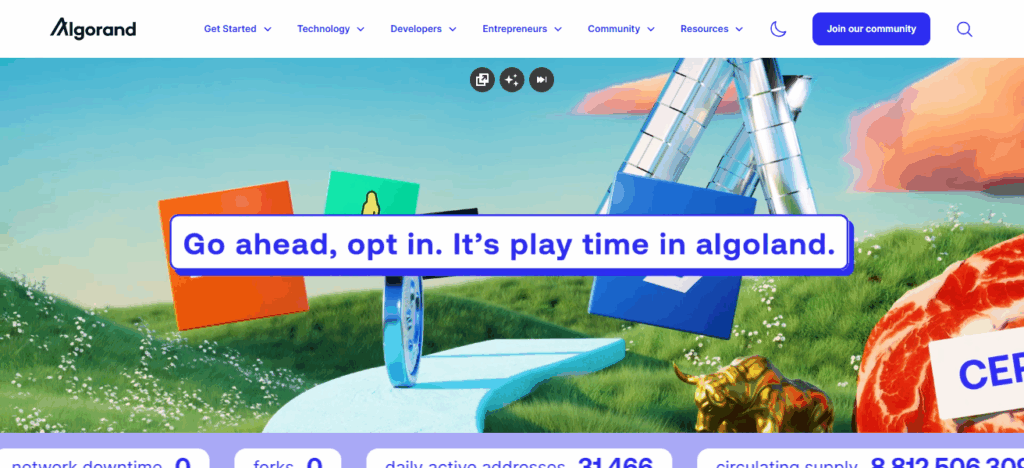
Algorand advances the blockchain infrastructure to support DeFI, smart contracts, and NFTs.
As a Boston based company, Algorand attained a USA respect of innovation for building a high efficiency and green co2 footprint improving blockchain system.
Features Algorand (ALGO)
- Pure Proof-of-Stake: Guarantees speed and minimal energy consumption.
- Instant Finality: Confirmations in a matter of seconds.
- DeFi & NFT Support: Expanding dApp ecosystem.
- Thousand TPS: Scalable and efficient infrastructure.
- US-based: Initiated by MIT professor Silvio Micali.
18. Filecoin
Filecoin, developed by Protocol Labs in the US, is a decentralized storage network that incentivizes users for sharing disk space and performing data retrieval tasks.
It is geared toward transforming the centralized storage system to a decentralized peer-to-peer network that utilizes the native FIL token.
Participants in the network can lease their idle storage and ensure privacy and redundancy for the data stored.
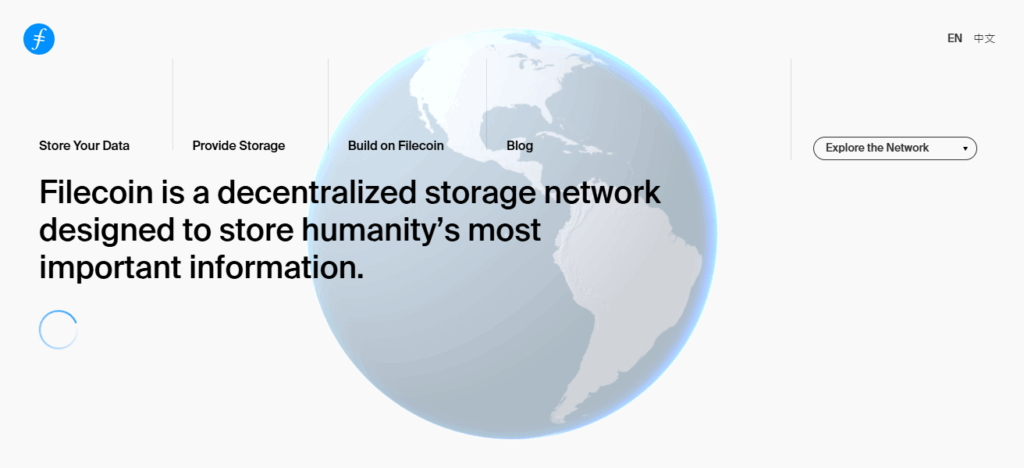
Filecoin is part of the Web3 ecosystem and is designed to support NFT storage, archives, and a decentralized cloud storage system.
Filecoin is among the first practical blockchain projects, utilizing decentralized internet infrastructure and storage, to offer real value, thanks to strong American innovation and infrastructure.
Features Filecoin (FIL)
- Decentralized Storage: Renting out spare disk space.
- Web3 Integration: dApp and NFT data support.
- Incentive model: Rewarding data storage with FIL tokens.
- Data Security: Redundant and encrypted.
- US-built: Designed by Protocol Labs in the USA.
19. Injective
Injective, designed by Injective Labs in the US, is a Layer-1 blockchain configured for decentralized finance and trading apps.
It is designed to optimize speed and interoperability so users can build custom DEXs, derivatives, and other financial markets without intermediaries.
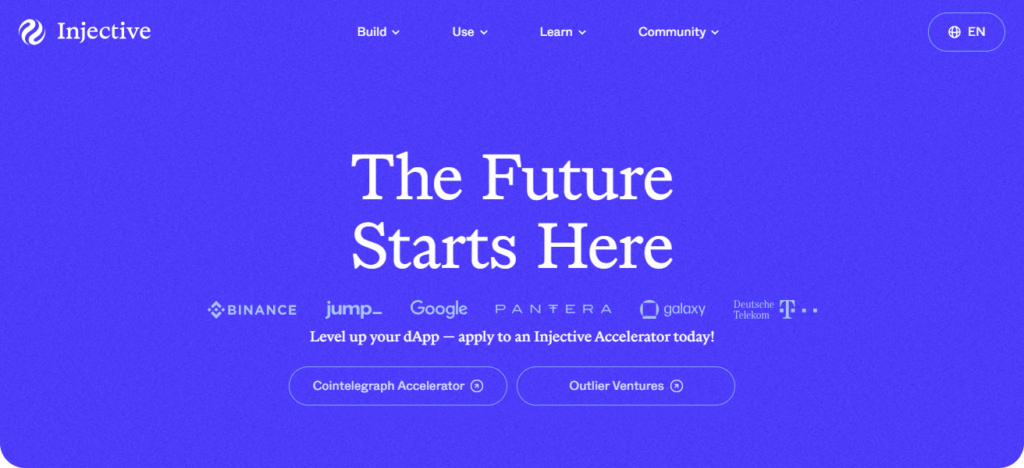
Injective offers users no gas fees and ensures instantaneous transaction finality. It is backed by important American investors like Pantera Capital and Binance Labs and is designed to power the next generation of decentralized trading infrastructure.
Injective can be considered the vital blockchain for American developed open and efficient financial markets owing to its innovative technology and the American development roots
Features Injective (INJ)
- Finance-focused blockchain: Tailored for DeFi and trading.
- Zero gas fees: User transactions are without cost.
- Instant Finality: Efficient and fast trade settlements.
- Interoperability: Primary Layer-1 and Layer-2 chains support.
- US innovation: By Injective Labs in the USA.
20. Theta Network
Established in the US by Mitch Liu and Jieyi Long, Theta Network decentralizes video streaming and pioneered the decentralization of video streaming, providing users with THETA tokens in exchange for bandwidth and computing power, making video content delivery more efficient.
Theta Network connects the blockchain and media industries with partnerships with Samsung, Sony, and Google.

Theta Network’s dual-token (THETA and TFUEL) ecosystem handles governance and operational transactions.
Theta Network improves video streaming quality and reduces streaming costs globally. Theta Network is the first blockchain technology US innovation merged with digital entertainment and video delivery infrastructure.
Features Theta Network (THETA)
- Video Streaming Focus: Media delivery decentralization.
- User rewards: Viewers share their bandwidth and earn tokens.
- Strong Partnerships: Google, Samsung, and Sony are backers.
- Dual token model: THETA for governance and TFUEL for operational tasks.
- Developed in USA: Founded by American entrepreneurs Mitch Liu and Jieyi Long.
Conclsuion
In summary, the finest USA-Made Crypto Coins emphasize the innovation and leadership the country has shown in the field of blockchain technology.
From the stablecoins like USDC to the high-performance networks Solana and Avalanche, these establishments are pioneering the path to global adoption.
Every coin, in terms of speed, security, and decentralization, showcases competitive advantages— confirming that the USA is still a major player in determining the future of cryptocurrency.
FAQ
They are cryptocurrencies developed or primarily based in the United States.
XRP, USDC, and Solana are among the top USA-made coins.
Yes, USDC is fully backed 1:1 by US dollar reserves.
XRP and Stellar (XLM) specialize in cross-border payments.
Uniswap, Aave, and Chainlink lead the US DeFi space.



